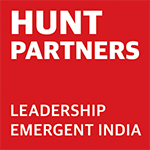Aditi MukherjeeExecutive Vice President & Head – Human Resources of NCDEX
Aditi is a highly respected, dynamic and transformative leader with over 21 years of experience in all aspects of Human Capital Management. She has worked in Global & Indian MNCs, Startup organizations and Domestic companies. Her diverse sectoral experience, in Technology, Financial, Consulting, Education, and Manufacturing spaces, enables her to bring deep insights to complement corporate strategy in high growth start-ups as well as mature stable business environments. She has been associated with Fortune 500 companies and Best Employer Brands such as Tata Steel, PriceWaterhouseCoopers, NIIT Ltd in leadership positions.
She is currently part of the Management team of National Commodity & Derivatives Exchange Limited (NCDEX) leading the Human Resources Function for India’s largest professionally managed technology-driven multi-commodity exchange, which focuses on revolutionising India’s agricultural space.
Aditi is an IIM-C Alumnus (EPHRM) PGDBM, IIPM-New Delhi 1997 and Bachelor of Science 1996. She is also a Certified Corporate Director, from the Institute of Directors, New Delhi, a Certified Professional Coach (International Coaching Federation standard), Certified in Six Thinking Hats and a Certified Thomas Profile Practitioner. She is a key member of NHRD Advisory Committee, East, held a position as a former HR Committee Member for CII West & East, part of ASSOCHAM, BCCI and other industry bodies. Aditi is a much sought after thought leader and speaker at various NHRD, CII Conferences and Seminars. Apart from her professional pursuits, she actively engages in volunteering her knowledge and skills in social sector improvement through NGO’s.
Her skills & expertise are in Strategic Partnership with C-Level Executives & Boards, Change Management & Leadership, Organizational Development & Talent Management, Strategic Leadership in HR, Culture & Team Development, Risk & Governance in multi-diverse sectors. She is a Master Networker, Forward Thinker and a Public Speaker.

HR STRATEGY

1. HR drives the business, what is your take on this? How does it influence your HR strategy?
I would say a successful business enterprise is like a wheel. HR is one of the wheel’s spokes, without which an organization will not run smoothly. The tougher the terrain or steeper the ride, the more the impetus needs to be given to Human Resources.
Human Resources strategy is always derived from the corporate strategy after assessing the macro influences, regulatory changes, winning aspirations, competition study, etc. This strategy is further bifurcated into key success factors, actionable and metrics.
2. Do you think HR has succeeded in becoming a strategic partner for business? What could be the areas of improvement?
Human Resources has come a long way from a line function to a strategic partner. This recognition was further augmented during peak Covid-19 times and continues post pandemic as the working environment is no longer the same.
Every function always has a scope for improvement, and so does Human Resources. The areas of improvement in HR deliverables at a generic level, in my opinion, are a deeper understanding of corporate governance, enterprise risk, cyber security, brand management matters and the linkage with people. While we have made tremendous progress in our core competency areas, we need to widen our gamut.
TALENT MANAGEMENT

3. What is your recruitment and talent development strategy?
Hiring is the first step toward organizational success, and we strive to get this right. The Exchange is in a niche sector, and talent with agri-commodity market understanding is not readily available or quickly replaceable.
Thus, we focus on campus hires from Agri B Schools and CA institutes to fulfil our talent pipeline. Aside from business skills, Technology is an important component of the Exchange ecosystem. Thus, we also hire wide ranging talent from the tech domain, a mix of Engineering freshers and experienced professionals.
Our focus is on people development as we consider ourselves a learning organization. We provide multiple avenues to hone, upgrade and skill our employees through the NCDEX Group Academy framework.
4. In a VUCA world, how do you cope with the disruptive forces? Be it Talent Retention, Engagement, and Development.
These are tough times, and leaders across the globe are navigating an uncharted journey. Geopolitics, technology explosion, data tsunami, collapsing cyber-physical world, environmental impact, change in the competitive landscape, and other forces compel leaders to stretch themselves constantly to thrive.
Traditional models of retention, engagement and development will not work. We need to skill our leaders to manage these VUCA times, which I think is a critical element in this story of retention and engagement.
TECHNOLOGY AND ANALYTICS

5. How do you see AI/Technology/Digital & Analytics play a role in HR?
AI/Technology/Digital & Analytics will make the existing areas of responsibilities in Human Resources radically different to a more refined landscape. Operations, talent acquisition, training and development, health, and engagement have already adopted AI in the past 3-4 years, and many more areas will also get covered.
If CHROs need to give 24*7 services to cater to a global employee strength with diversified experience needs, leveraging Technology and AI is the only way forward.
6. What are your thoughts on workplace innovation in HR, particularly in the context of the current disruption/WFH we have been forced to adopt?
In an Exchange space such as ours, when the pandemic hit, WFH was unheard of, and so naturally, there was discomfort and initial scepticism. The last two years have brought out the best in our process, systems, and people from an automation perspective. In 2020, the shift to Work From Anywhere and Work from Home was immediate and successful, with minimal to nil disruption to operations; this is commendable, particularly for an Exchange with its several regulatory mandates as to the need for physical isolation and confidentiality. We were more agile than we thought, quickly adapting to and innovating the new way of working.
ROLE OF HR IN THE ORGANISATION OF FUTURE

7. How has HR changed in the recent past? What is the main challenge HR may face over the coming years?
HR Challenges that I see are
- Creating a compelling future vision
- Adapting to changing labour regulations and rules
- Retention of workforce
- Agile and Adaptive Leadership
- Balancing Technology and Human Skills
8. How do you define the Organization of today? And what is the future of the Organization?
Today’s Organization is in flux, just like the transformational stages. The management principles of predictability, control, and loyalty will not work anymore. When you think of today’s Organization, you can visualize a large office space, swanky cafeterias, uber cool millennials walking into the office and other external manifests that speakers of the organizational brand.
The future of an organization, in my opinion, will look very different. Changing workforce behaviours and demands will certainly impact the physical space of an organization to move to an undefined one. It will be less management led and more led by leaders across all levels. Front lines personnel who deal directly with customers would ultimately deliver a seamless, personalized experience
PERSONAL

9. What message would you like to share with young professionals?
Professional ethics is extremely important. So never dilute that no matter how high you reach in your career.
10. What are the 3 most pivotal moments in your career that you learned from and/or that got you where you are today?
- Humility and genuine care
- Thirst for learning
- Honesty to my craft
